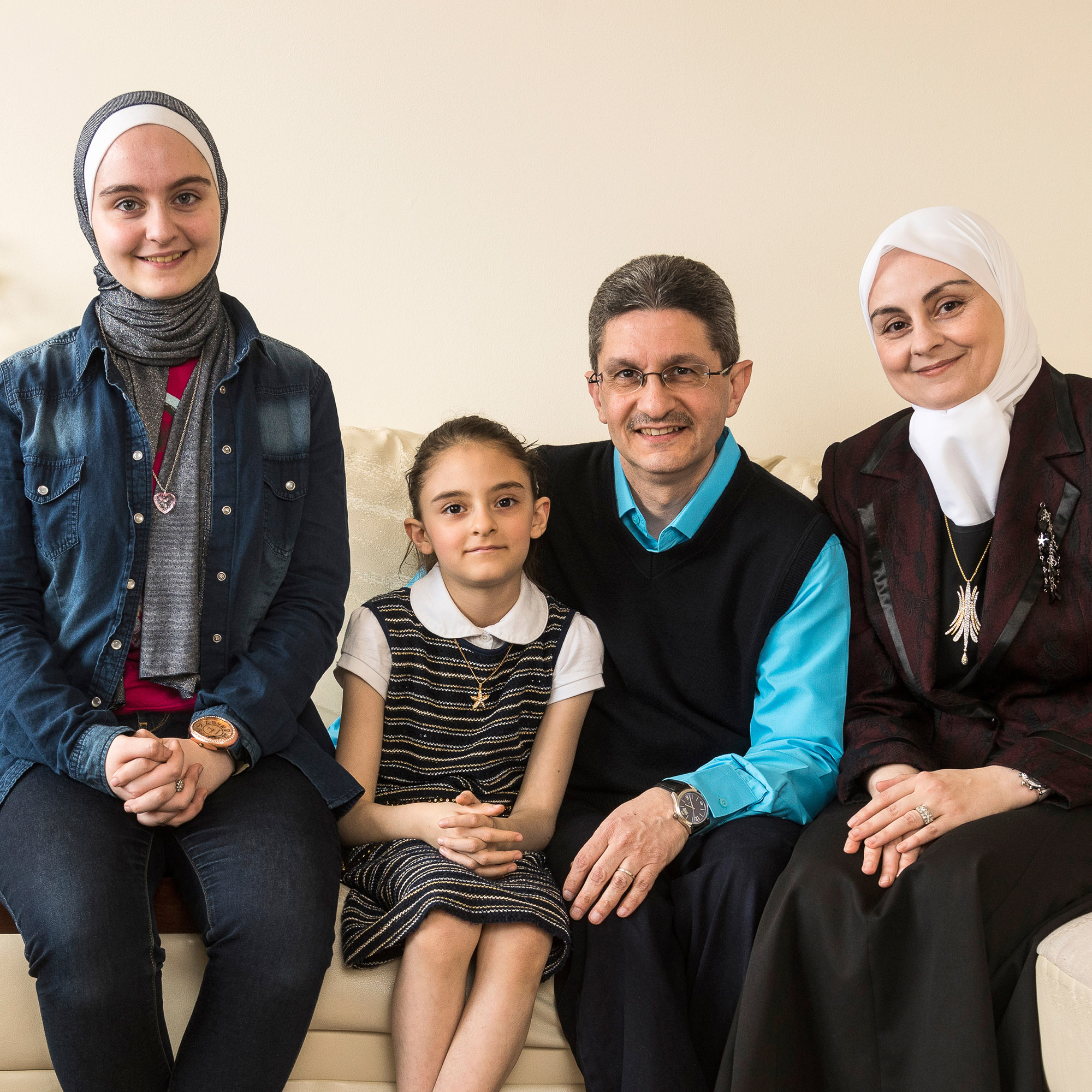The Lababidi family Sarah, Shahed, Mohammad and Farzat
—
Without this story, none of the others would have been written.
The Lababidi family, like hundreds of thousands of others, was not safe in their home in Syria. They had little choice but to leave.
Mohammad, a civil engineer, and Farzat, a pharmacist, were living with their two daughters, Sarah and Shahed, in an apartment in Damascus. Farzat’s mother and Mohammad’s brother and sisters lived in the same building.

“After the protests began in Syria in 2011, there were many explosions around our building. We started to think about a safe place to go. And the final straw came with a massive explosion at Farzat’s pharmacy,” explains Mohammad.
“My sisters had moved to Jordan years before,” adds Farzat. “So we decided to go and stay there until the war is over.” Mohammad continues the story. “We stayed for about four years. But there was nothing to do there. You cannot work. You cannot drive. You cannot even apply for a driver’s license, just because you are Syrian.”
Sarah and Shahed weren’t allowed to attend public school in Jordan, so the family depleted their savings on private school tuition. Finally, they decided it was time to move on.
“We decided to find another place, safer for us,” says Mohammad. “My brother sent me an application for Canada. They found a sponsor for us. The church sent our application to the government on February 19. After two days, we received a call that we have an interview the next day. It was amazing. Nobody can believe it.”
After a month and a half, the Lababidis landed in Canada, part of the government’s expedited sponsorship process for Syrians.
“We cannot describe it, how we felt,” says Farzat.
Life is full of big moments and big decisions. Coming to Canada was a big decision. It was a good decision.
“At first, we were afraid. New life. New culture. New language. We don’t know how to explain that feeling that we had. After that, day by day, we felt at home. We love Canada and we hope everything will go well for us,” adds Mohammad.
A year on, the Lababidis are living in a small, cozy apartment. The photos and knickknacks that add colour to many family homes are noticeably absent, but the building is a stone’s throw from Sarah’s school and there’s a playground nearby.
Although they didn’t speak English before arriving in Ottawa, after 11 months in language classes, both Farzat and Mohammad express themselves well. The whole family is shy about their English skills, but they’re all remarkably fluent. The girls, now 14 and 8, are doing well in school, and both dream of becoming doctors.
Farzat is completing an internship at a local pharmacy. “I am training and volunteering. The medicines are the same. It’s the systems that are different,” she explains. Mohammad is considering retraining, but wants to improve his language skills before making a decision.
They connect with Farzat’s family on Skype — her mother and one sisters are in Jordan, a second sister is in Saudi Arabia and her brother in Lebanon — and hope that one day they’ll be together again.
“We were surprised with everything,” says Mohammad. “The Canadian people are so friendly. We didn’t know that before. We are surprised by everything that the government and the Canadian people do for the refugees to help them start life in Canada.”
“Sometimes I’m afraid for the future. For my daughters. For me and my husband,” says Farzat. “But sometimes I feel comfortable here because we are safe. Everything is more than we expected. Better than we expected.”




